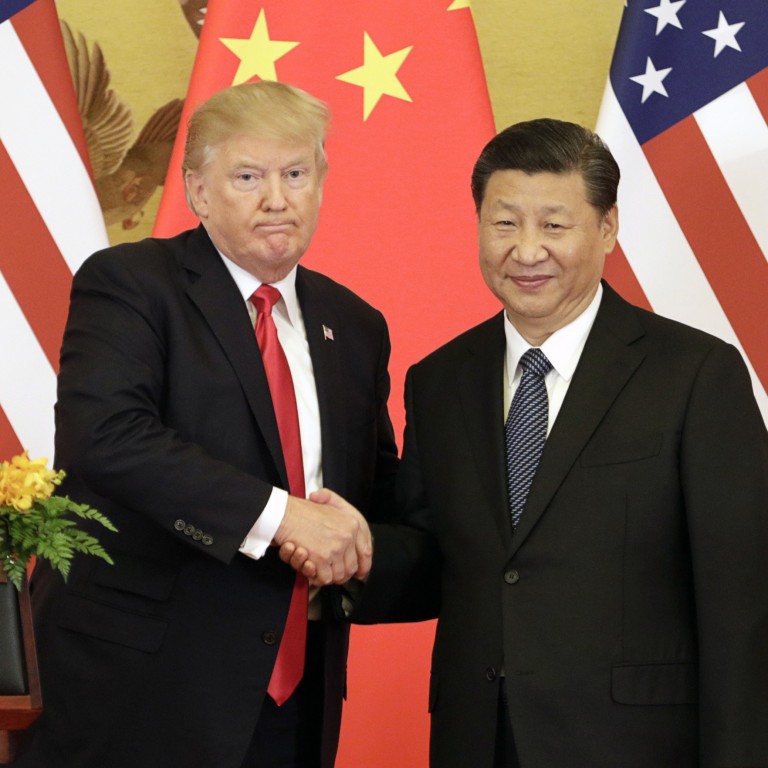
Has Trump’s ‘Art of the Deal’ met its match in Xi Jinping’s long game? FBI’s former crisis negotiator breaks it down
- Former FBI crisis negotiator says he is not convinced Trump has ‘appreciation for the strategic instruments that successful international relations require’
US President Donald Trump lacks the negotiating talent needed to resolve the US-China trade war in America’s favour, according to James Chip Massey, a former crisis negotiator at the US Federal Bureau of Investigation (FBI), who now advises CEOs on business negotiations.
Massey, who spent weeks of intensive training to join the FBI’s crisis negotiations team and once worked on espionage cases, told the South China Morning Post that he holds little hope for Trump, given the president’s famed inattention to detail and disdain for intelligence gathering.
Massey pointedly disagreed with Trump’s assessment of Chinese President Xi Jinping as a “world class poker player”.
“Xi is a world-class chess player,” Massey said, who has been a featured speaker at the Carnegie New Leaders programme, the US Military Academy at West Point, and to law enforcement and business organisations around the US.
“He is well-versed in strategy and [can read] the mind of his opponent. And he is patient. From what I’ve seen so far, I’m not convinced that President Trump has an equivalent amount of discipline or patience, or an appreciation for the strategic instruments that successful international relations require.”
Massey said that Trump relies on the force of his personality to achieve his aims.
“He appears to be motivated by the short game – quick surface wins that give the impression of progress.”
Trump sent shock waves through global markets on Sunday when he tweeted that the 10 per cent that had been levied on US$200 billion of goods made in China would increase to 25 per cent from Friday.
The news roiled trade talks that seemed to have calmed down and blunted stock market gains. Mainland Chinese equities have lost almost US$1 trillion in market capitalisation since their high in April, according to Bloomberg data.
White House officials are reportedly divided on Trump’s tactics and have openly argued in front of Chinese trade delegations.
Massey also lauded Xi’s intelligence gathering capabilities. “President Xi is playing the long game … he is intent on strengthening an already powerful and hugely effective intelligence apparatus. In 2018, the country spent more than US$8 billion in 68 countries to increase its influence and hamper US efforts.”
Xi is a world-class chess player. He is well-versed in strategy and [can read] the mind of his opponent
The former FBI official criticised Trump’s reductions in personnel and resources at the US Department of State and vilification of US intelligence agencies that would otherwise be helping him during negotiations.
He said that Trump’s traditional negotiating style of bombast, threats and litigation in negotiations may not ultimately get him very far when dealing with Xi, adding that focused listening was the key to dealing with tense negotiations.
“If you allow the noise and pressure to seep into the conversation, your opponent will notice. You’ll seem absent or inauthentic to them,” Massey said, adding that stressed negotiators can lose sight of how emotional negotiations can be.
“When we focus on the outcome and not the process, we lose more deals than we win. The negotiation/sales cycle is filled with ups and downs. When you feel like a deal is slipping away, your stress level rises, and you can appear desperate. Now you’re part of the problem.”
Massey advises his CEO clients to be aware of their own limitations. “It’s a hard lesson for people who insist on controlling their environments, but the sooner they learn it, the more freedom they’ll have to influence the behaviour of those around them.”

